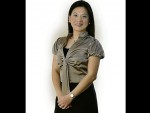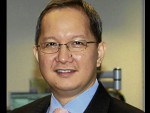With P250,000 in extra cash, one can already buy a second-hand car or make a down payment for a brand-new one. It can be used as equity for a condo unit, or spent for your Bucket list—be it a budget European sightseeing or a cruise somewhere. But if you are not in the market for a car or a house, in no mood to splurge, scared to do your own stock picking or simply uneasy to even consider bringing your money out of your bank, just make your bank work harder for you.
The Inquirer’s Doris C. Dumlao polled banking experts what products would they recommend to their clients at this time and these are their suggestions:
Teresa Marcial-Javier
EVP/head of asset management and trust group
Bank of the Philippine Islands
“For a moderately conservative portfolio worth P250,000, invest 15 percent, or P37,500, in BPI Short-Term Fund; 26 percent, or P65,000, in ALFM Peso Bond Fund; 26 percent, or P65,000, in BPI Premium Bond Fund; 23 percent, or P57,500, in ABF Philippines Bond Index Fund; and 10 percent, or P25,000, in BPI Equity Fund.”
Pascual Garcia III
President
Philippine Savings Bank
“Given the volatility of markets worldwide, money market funds and bank time deposits are ideal to maintain liquidity in order to be able to enter the equity markets via equity funds when price levels are lower and more favorable.”
Tony Cripps
Chief executive officer
HSBC Philippines
“The second half will be quite volatile for developed markets given the risks of European contagion and the US debt problems. Developed markets will be quite challenging in the second half and be risk-averse so, personally, I’d be in cash just because I think the markets are going to be choppy. The best thing to do is open an HSBC account and put the P250,000 in it. I think that, in the short term, the market will be quite challenging. On a longer term horizon (three to five years), I’d invest in Philippine growth stocks. I like the mining sector. I’m positive on the Philippines and upbeat on sectors like infrastructure. So on a longer term horizon, I’d recommend investing in a growth fund—more equity than fixed income.”
Eugene Acevedo
Retired banker/former president
Philippine National Bank
“I still like my (buy) Aussie dollar idea, a proxy play on gold and China growth. Allot P100,000 for this. Add to that P50,000 for power generation equity shares as I expect demand to keep rising faster than the economy. For the remaining P100,000, invest in YOURSELF. That’s right—YOURSELF. Pay for gym membership and get a trainer. Save on future medical expenses. Learn Mandarin to make your resumé more marketable regionally. Pick up a musical instrument to open up the creative side of your brain. Get a trusted style icon friend to help you fix your look.”
Arcus Fernando
Country treasurer
Citi Philippines
“I like long tenor peso government bonds, 10 years or longer. There is good value in locking in at the current levels. With global growth at risk and with the inflation outlook benign, monetary authorities worldwide are expected to keep interest rates low. The concern over the poor growth in the United States and Euro area will lead global investors to focus on emerging markets assets and currencies—Philippine assets and the peso included. Local equities may show some interesting valuations, but given the poor global growth picture, equity markets will tend to be more volatile. Investments in stocks over the near term would be best for those with higher risk tolerance.”
Marvin Fausto
Chief investment officer
Banco de Oro Unibank
“If the funds will be needed within 12 months, I suggest you invest in our BDO Peso Money market (PMMF) fund to enjoy relatively high yield for a short term and very conservative investment. Investments are in deposits, government securities and SDA [special deposit accounts] of the BSP [Bangko Sentral ng Pilipinas]. One can terminate and withdraw from the fund anytime. Yields are very stable and earns higher than what you get from an ordinary deposit. BDO PMMF generates returns of 3 to 4 percent per year. If funds can be invested longer, I suggest the BDO Equity fund. The fund is invested in listed equities that are designed to outperform the stock market. The fund has outperformed the stock market for the past five years due to disciplined and professional management. It is for investors with higher risk appetite and who are willing to ride the volatility of the market in order to generate higher returns over the long term.”
Rene Sarmiento
First vice president/head of trust group
China Bank
“Those with conservative risk profile may invest in time deposits or special savings deposits of China Bank where they can earn fixed rates of returns. Conservative persons with longer-term orientation may buy government securities from the bank’s treasury department. Yields on GS investments vary depending on the term of the instrument and the prevailing market prices.
The more sophisticated and aggressive individuals may opt to invest in pooled funds such as the Unit Investment Trust Funds (UITFs). Yields on UITFs vary depending on the specific fund’s performance. The performance of UITFs will exhibit some volatility since assets held by these funds are marked-to-market daily. China Bank offers three peso-denominated UITF variants: China Bank Money Market Fund, GS Fund and Balanced Fund where the investment requirement is only P100,000. These UITFs cater to investors with varying risk appetites, needs and objectives. For instance, if a client desires a high level of liquidity and still wishes to enjoy better earnings potential than letting his funds remain in a deposit account, he could look at the Money Market Fund. Those with higher risk tolerance may consider the Balanced Fund. For those who also want added insurance coverage, variable life insurance plan from China Bank’s bancassurance arm, Manulife-China Bank Life Assurance Corp. (MCBLife), may be an option.”




